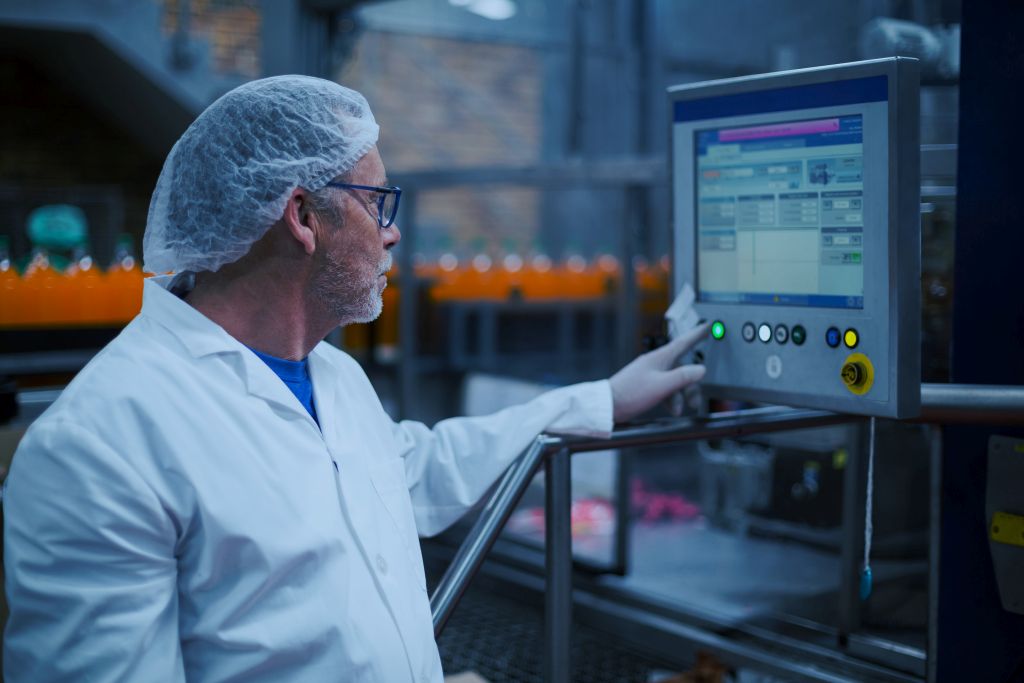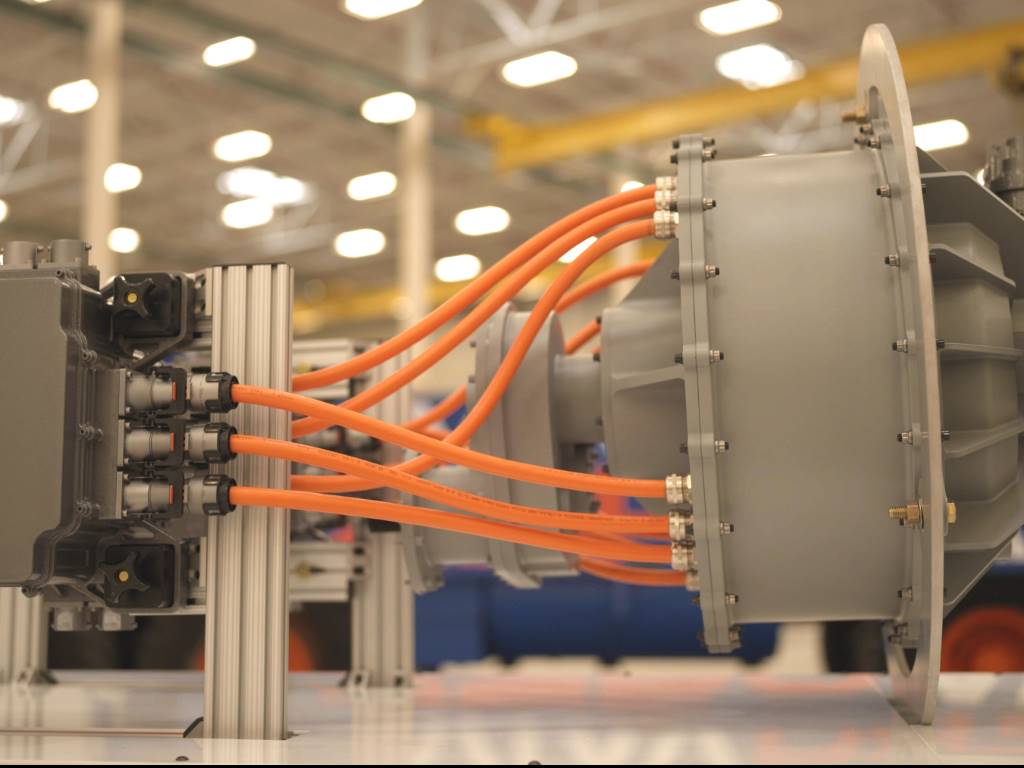Stay on the right track

As a leading provider of industrial IoT and AI-based optimisation solutions for advanced manufacturing, Plataine explains why tracking manufacturing processes are vital for the aerospace sector.
As a vendor who provides solutions for aerospace composites manufacturers, we have seen first-hand the benefits of tracking manufacturing processes. let’s discuss why tracking manufacturing processes is vital for the aerospace & defence (A&D) industry and what production tracking entails, the importance of tracking manufacturing processes, whether tracking processes should be manual or automatic, and how data from tracking technologies helps improve performance.
Production tracking refers to the process of monitoring and recording every stage of the manufacturing process, from the raw materials used to the finished product. This can include tracking the movement of materials, monitoring equipment performance, and recording data on the manufacturing process itself.

Production tracking is essential for businesses that want to optimise their manufacturing operations and improve product quality. By tracking the production process, manufacturers can identify inefficiencies, bottlenecks, and other areas that can be improved. This information can then be used to optimise the production process, reduce costs, and improve product quality.
Production tracking can be done manually, using paper-based systems or spreadsheets, or it can be automated using software and sensors. Automation provides real-time data on the production process, which can be used to quickly identify and address issues. Additionally, automated production tracking systems can reduce the risk of human error and provide greater accuracy and consistency in the data collected.
Overall, production tracking is a critical component of modern manufacturing operations. By monitoring and recording every aspect of the production process, manufacturers can gain greater visibility and control over their operations, reduce costs, and improve product quality.
Why tracking is important
Tracking manufacturing processes is essential for businesses that want to optimise their operations, reduce costs, and improve product quality. According to an article published by IndustryWeek, tracking manufacturing processes can provide manufacturers with several benefits, including: Quality control: By tracking the manufacturing process, manufacturers can ensure that products meet quality standards. This helps to prevent defects and reduces the risk of recalls; Process optimisation: Tracking manufacturing processes can help identify inefficiencies and bottlenecks in the production process. This information can then be used to optimise the production process and improve overall efficiency; Cost savings: Tracking manufacturing processes can help identify ways to reduce costs associated with labour, materials, and production; Compliance: Tracking manufacturing processes can help ensure that manufacturers are complying with regulations and industry standards; Real-time visibility: Tracking manufacturing processes in real-time provides manufacturers with up-to-date information about the production process. This enables them to quickly identify and respond to issues or changes in the process.
The article notes that tracking manufacturing processes is becoming increasingly important as manufacturers adopt Industry 4.0 technologies. These technologies, such as the Internet of Things (IoT) and machine learning, generate vast amounts of data that can be used to optimise manufacturing processes and improve product quality.
However, the article also notes that implementing a system to track manufacturing processes can be a complex task. It requires significant investment in technology, training, and process improvement. Nevertheless, the benefits of tracking manufacturing processes outweigh the costs for most manufacturers, particularly those that are looking to stay competitive in an increasingly digital and data-driven manufacturing landscape.
In conclusion, tracking manufacturing processes is essential for businesses that want to optimise their operations, reduce costs, and improve product quality. While implementing a system to track manufacturing processes can be complex and costly, the benefits of doing so outweigh the costs for most manufacturers. With the right tools and technology, manufacturers can gain real-time visibility into their production processes, optimise their operations, and improve their bottom line.
Manual or automatic?
There is no one-size-fits-all answer to whether tracking manufacturing processes should be manual or automatic. It ultimately depends on the specific needs and resources of each manufacturer. However, many manufacturers are moving towards automatic tracking methods due to the real-time data they provide.
An article published by Forbes highlights the benefits of using automatic tracking technologies in manufacturing. The article notes that automatic tracking technologies, such as RFID and barcode systems, offer several advantages over manual tracking methods, including: Improved accuracy: Automatic tracking technologies are less prone to errors than manual tracking methods, which can improve the overall quality of the products being manufactured; Real-time data: Automatic tracking technologies provide real-time data, which enables manufacturers to quickly identify and respond to issues or changes in the production process; Increased efficiency: By automating the tracking process, manufacturers can reduce the time and resources required for manual tracking, allowing them to increase their efficiency and productivity; Better data management: Automatic tracking technologies can store and organise large amounts of data, making it easier for manufacturers to analyse and leverage the data to make data-driven decisions.
It’s also noted that while manual tracking methods may still be suitable for some manufacturers, the benefits of automatic tracking technologies are becoming increasingly clear. By embracing automatic tracking technologies, manufacturers can increase their efficiency, reduce costs, and improve the overall quality of their products.
Data from tracking technologies can help improve manufacturing performance in several ways: Real-time monitoring: Real-time monitoring allows manufacturers to track the progress of production processes in real-time, providing them with the ability to respond quickly to changes or issues that may arise. This can help prevent production delays and ensure that production targets are met; Predictive maintenance: Tracking technologies can also help predict when equipment or machinery may need maintenance, allowing manufacturers to take proactive measures before costly breakdowns occur. This can help reduce downtime and increase overall equipment effectiveness (OEE); Continuous improvement: Data collected from tracking technologies can help manufacturers identify inefficiencies and areas for improvement in their production processes. This information can be used to make data-driven decisions and implement continuous improvement initiatives to increase efficiency and reduce waste; Quality control: By tracking the production process and identifying defects or quality issues early on, manufacturers can take corrective action to improve quality control and reduce the number of defects in their products. This can result in higher customer satisfaction and improved reputation.
Overall, the data collected from tracking technologies provides manufacturers with valuable insights into their production processes, allowing them to optimise their operations, reduce costs, and improve quality. By leveraging this data, manufacturers can gain a competitive edge in the market and increase their profitability.
In conclusion, tracking manufacturing processes is vital for all kinds of industries. By tracking the production process, manufacturers can identify inefficiencies, improve quality control, and improve supply chain visibility. Whether tracking processes should be manual or automatic depends on a variety of factors, but many manufacturers are moving towards automatic tracking methods due to the real-time data they provide. The data collected from tracking technologies can be used in many ways to improve performance, including real-time monitoring, predictive maintenance, continuous improvement, and quality control. Overall, manufacturers that embrace production tracking are more likely to achieve greater efficiency, higher quality, and increased profitability.












